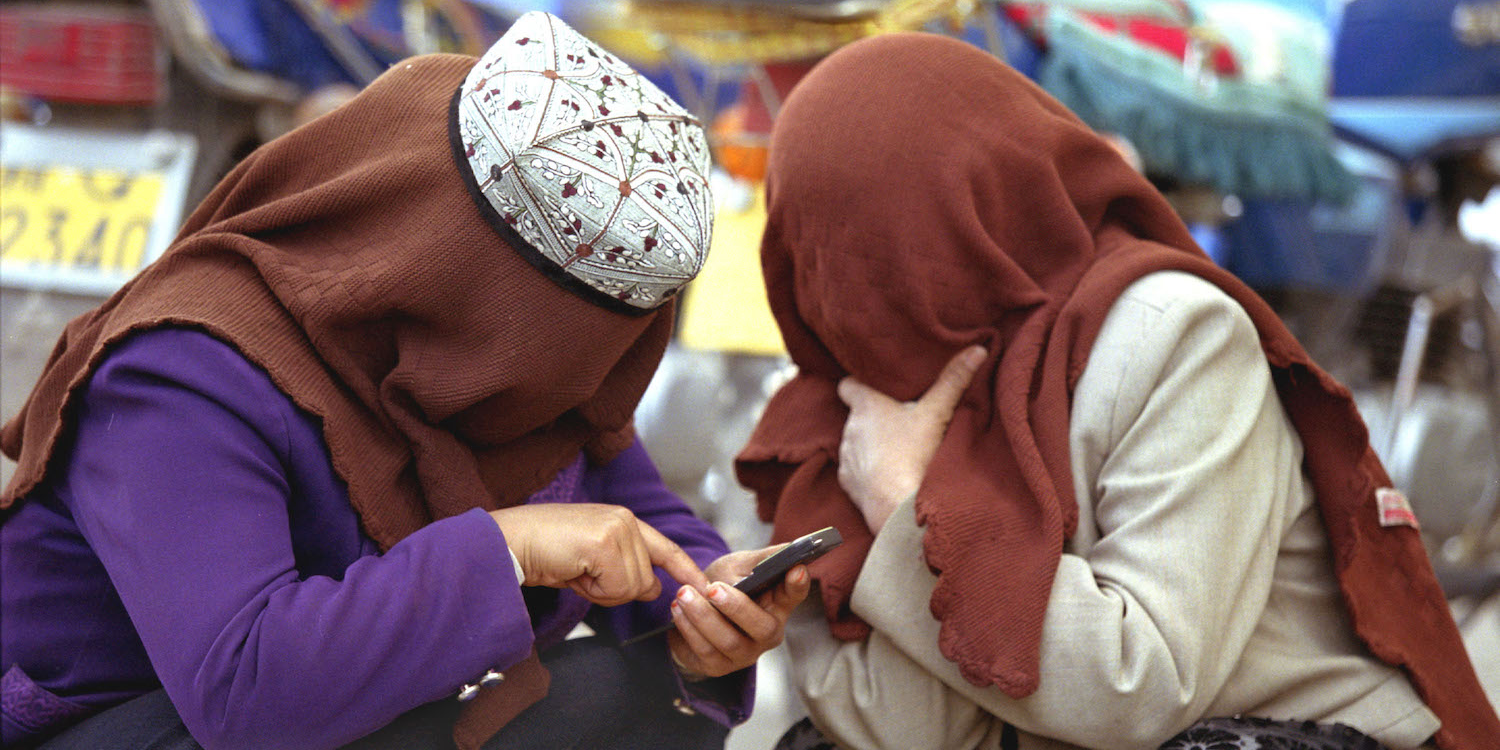- The International Consortium of Investigative Journalists (ICIJ) published leaked documents detailing China’s coordinated crackdown on the Uighur Muslim minority.
- One document described how authorities rounded up 40,557 people who were identified as having shared banned content via the file-sharing app named Zapya.
- Zapya encourages users to download the Quran and share religious teachings, the ICIJ reported. China sees Uighurs’ religion as a threat.
- The document ordered officials to investigate all 40,557 people “one by one,” and send them to “concentrated training” unless they could prove themselves innocent.
- It’s not clear how officials accessed the app’s user data. But the Chinese government has the power to demand user data and the contents of private conversations whenever it wants.
- Visit Business Insider’s homepage for more stories.
Chinese authorities used a file-sharing app to target Uighur Muslims to send to its vast network of oppressive prison camps, according to leaked classified documents published by the International Consortium of Investigative Journalists (ICIJ).
The document provides a clear look at China’s tactics for controlling Uighurs, who live in the western Xinjiang area of China, via sophisticated technology and surveillance.
Since 2017, China has waged a coordinated hi-tech counterterrorism campaign on the Uighurs. Authorities have locked up at least 1 million Uighurs in prison and detention camps.
One of the documents, dated June 2017, noted that authorities in Xinjiang had identified 40,557 people by monitoring their activity on Zapya, a popular free Chinese app used to share audio and video files.
It encourages users to download the Quran and share religious teachings, the ICIJ reported. China described the material as encouraging terrorism.
The app, also known as Kuai Ya - or "fast tooth" - in Chinese, is developed by DewMobile Inc., which is headquartered in Beijing. The app is popular beyond China, and is used in countries including Myanmar, India, and Pakistan.
Zapya allows smartphones to connect to one another without being connected to the web, making it popular in areas with poor internet connection, according to the ICIJ.
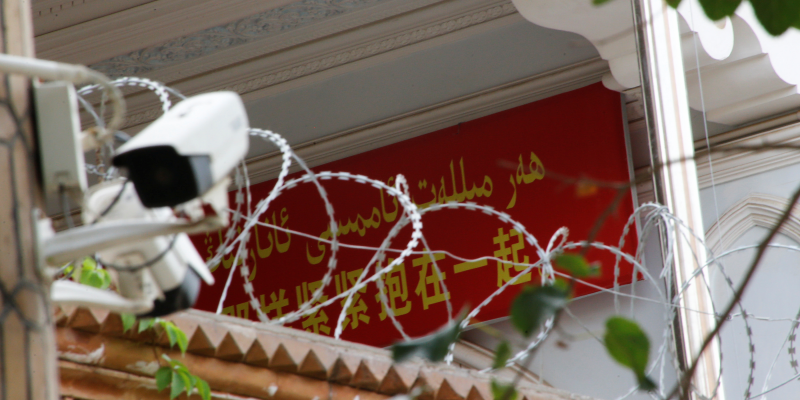
According to the Communist Party document, authorities found that more than 1.8 million Uighurs in Xinjiang had downloaded the software between July 2016 and June 2017, and that 40,557 of them are what it called "harmful" people.
"Harmful" people include fugitives, criminal detainees, and "unauthorized imams." The Communist Party tightly controls religion, only allowing people to practise and congregate if their sect is officially sanctioned by the government.
After a spate of ethnic riots between Uighurs and Han Chinese - the dominant ethnic group in the country - in 2009, China started to see Uighurs as terrorists. China has frequently conflated Islam with extremism, and likened it to a cancer or disease.
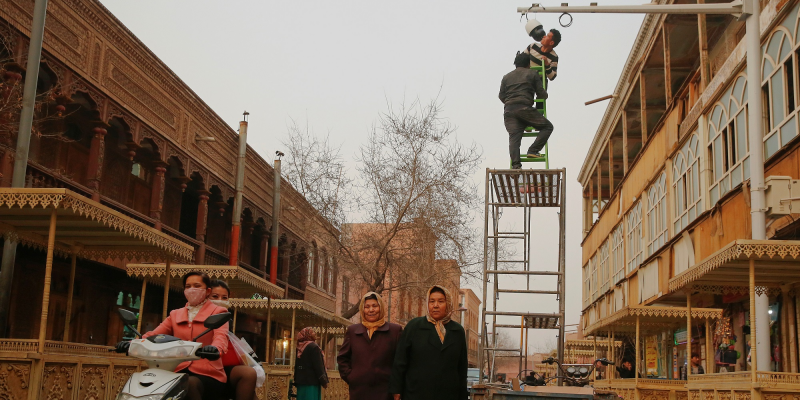
The document then instructs officials to crack down on those 40,557 people "one by one" and to detain them in prison camps unless they were able to prove themselves innocent.
"All localities should ... carry out investigation and verification one by one, and for those suspected of terrorism, it is necessary to fix evidence and crack down according to the law in a timely manner," the document says.
"If it is not possible at the moment to eliminate suspicion, it is necessary to put in concentrated training and further screen and review."
The document does not make clear what "concentrated training" entails, but it is likely to mean a prison or a detention camp, where conditions are filthy, and detainees are physically and psychologically tortured, according to people who have been inside.
Sharing "harmful" content on apps such as Zapya is one of many reasons China cites to justify sending people to prison camps.
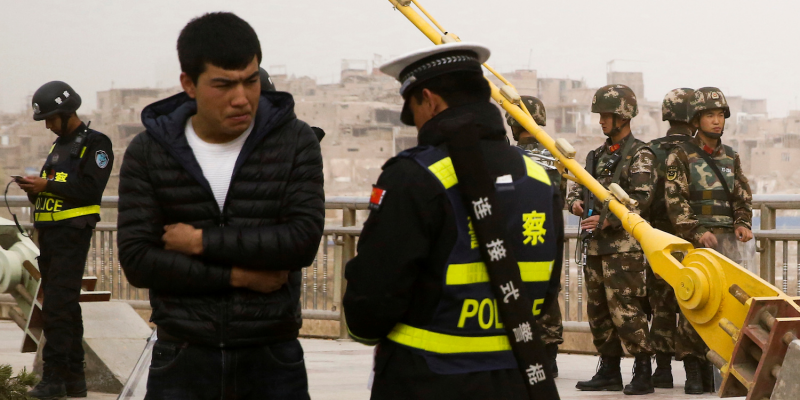
How officials accessed the app's users, and what they sent and received, is not clear. But the Chinese government has the power to request and obtain user data and the contents of private conversations whenever it wants.
WeChat is one of many Chinese tech giants which has handed over private user information to law enforcement officials in the past.
China also makes tourists visiting the region install invasive software that downloads their texts and scans their phones for Islam-related content, a joint report by Vice, the Guardian, The New York Times, and German outlets NDR and Süddeutsche Zeitung found earlier this year.
Officials in Xinjiang also use a special app to log residents' personal information, which include political views, use of birth control, and use of electricity at home, as reported by Human Rights Watch this year and detailed in ICIJ's leaked files.
Party officials policing the region also stick QR codes in front of people's front doors to log personal information about the household and track their whereabouts.
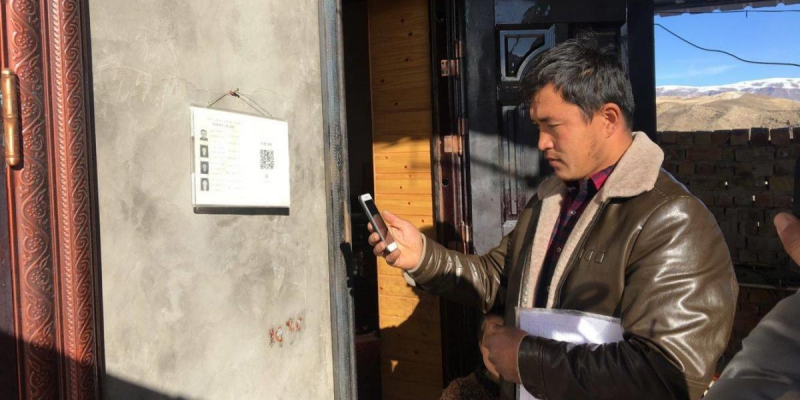
The leaked documents published on Sunday, in addition to a separate cache of leaked Communist Party instructions published by The New York Times last Saturday, offer an unprecedented glimpse into the party's coordinated campaign against the Uighurs.
Previous reports of atrocities in the region had largely been based on the testimony of Uighurs living outside China and of former detainees in prison camps. The latest documents confirm the existence of the government's oppression.
China has called the leaked documents "pure fabrication and fake news," and denied the existence of documents ordering officials to send people to prison camps, The Guardian reported.
China euphemistically calls the detention camps "free vocational training."
- Read more:
- China tells Uighur Muslims they are abducting their families so they can cleanse their brains like they have a disease, leaked documents show
- People in China are bypassing its internet firewall to read explosive leaked files about Uighur oppression, and saluting an official who disobeyed Xi Jinping
- Maps show 500 suspected 're-education' camps and prisons where China is locking up and torturing its Muslim minority
- This map shows a trillion-dollar reason why China is oppressing more than a million Muslims

